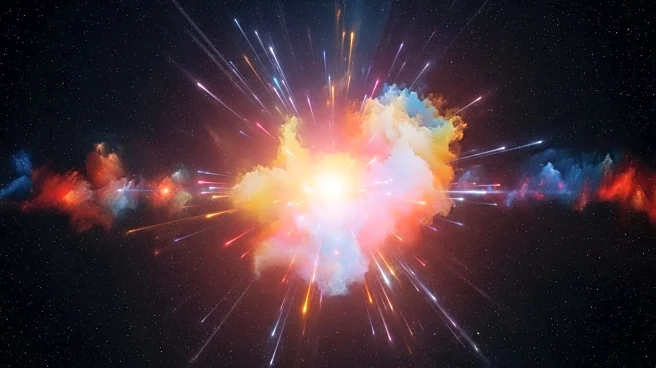What's Happening?
Scientists have proposed a new model for the Big Bang, potentially altering the understanding of the universe's origins. The traditional Big Bang Model, which describes the universe's expansion from a dense
point 13.8 billion years ago, is widely accepted but leaves many early universe details uncertain. The new proposal, published in the American Physical Society's Physical Review Journal, suggests an alternative theory that eliminates the need for the inflaton particle, previously thought to drive rapid expansion post-Big Bang. This theory posits that gravitational waves could explain the formation of matter and structure in the early universe.
Why It's Important?
This new model could significantly impact cosmology by providing a different perspective on the universe's formation. If validated, it may reshape scientific understanding of cosmic evolution and influence future research directions. The removal of the inflaton particle from the equation simplifies the model, potentially making it more accessible for further study. This development could lead to new insights into the fundamental forces and particles that shaped the universe, affecting theoretical physics and cosmology.
What's Next?
Further research and peer review are necessary to validate this new model. Scientists will likely conduct experiments and simulations to test the theory's predictions against observable data. If successful, this model could become a new framework for understanding cosmic origins, prompting revisions in textbooks and educational materials. The scientific community may engage in debates and discussions to explore the implications of this theory, potentially leading to new collaborations and research initiatives.
Beyond the Headlines
The introduction of this model raises questions about the nature of scientific progress and the willingness to challenge established theories. It highlights the dynamic nature of scientific inquiry, where new evidence can lead to paradigm shifts. This development may inspire other researchers to explore unconventional ideas, fostering innovation and creativity in scientific exploration.










